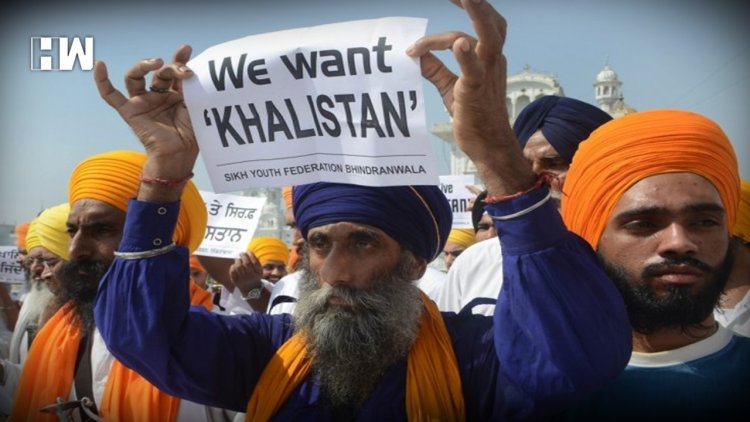
by Muhammad Ahmad Khan 5 April 2023
When the subcontinent was divided between Pakistan and India, it was not just a division of borders, but rather cultures, religions, and objectives. Families from both sides lost their relatives as they migrated from both sides of the border to the other side, hoping to live a better life. Sikhs were majorly living in Punjab, both Pakistani and India, but after partition, most of them migrated to Indian Punjab. Nehru had hoped and anticipated that India will create unity in diversity as different nationalist and ethnic groups coalesced under one platform. Even at the time of partition, Hindutva-based political groups wanted to make India a Hindu country through a huge cultural and nationalist campaign. But it is better to understand why, Nehru’s India has come so far where minorities have been persecuted with impunity. Under the BJP government, not just the Hindu nationalist groups are massively targeting minorities like Muslims, and Christians but now also Sikhs, but also instigating Hindu nationalist agendas on large scale.
This is a tussle of identity and nationalism. Besides living in one country, no one nation exists in India when it comes to understanding the internal dynamics of society. Anatol Lieven argued that the concept of nationalism varies from context to context. It depends upon whom the nationalist is dealing with. In a foreign country, the national can be Indian, Pakistan, or British. While dealing with a Christian, the person may define himself as a Muslim or a Hindu. And inside the country, when dealing with Hindus he may define himself as a Sikh or a Muslim depending upon the nature of the agenda he carries. Currently, both Hindus and Sikhs conflict with India, and there are reasons behind it. Sikhs’ struggle to have an independent country started after the partition of the Britishers. Although there were perspectives quite earlier in 1920 as there were communities like Akali Dal raising their voice for political rights of the Sikhs inside India and outside also. But when the Britishers decided to leave India, Sikhs realized that they have to materialize efforts to seek an independent Sikh country named Khalistan, meaning the rule of Khalsa. The Indian government didn’t prove forthcoming to such ideas as Hindu nationalists were strictly against any such division of India. Under Jarnail Singh Bhindranwale they raised their weapons for their rights which were violently downed by the state. After the killing of Bhindranwale, the Khalistan movement lost its force and cooled down.
However, after the BJP government took power in 2014 and is vehemently promulgating Hindu nationalist ideas, it threatens Sikh identity as well. Recently, under young leader Amritpal Singh, who dresses like Bhindranwale, Sikhs are again mobilizing against the state as they consider certain marginalization of Sikhs in India. The Sikh Diaspora is raising its voice at different forums internationally. This current BJP government has proven quite disastrous for India as a society. Minorities are marginalized, and a huge wave is being run to make India a Hindu Rashtra, a country that only exists for Hindus and where all other groups will face suppression. There has been a massive crackdown against Sikhs and followers of ‘Waris Punjab De’. There has been a backlash against this crackdown both in India and abroad in the Sikh diaspora. The wound caused to Sikhs in the wake of “Operation Blue Star”, a military operation launched in 1984, is yet to heal when the Modi government started another crackdown against Sikhs. Imaan Sigh Khara, the legal advisor to ‘Waris Punjab De’, confirmed that Punjab Police arrested Amritpal Singh. He added that serious information is that Amritpal will be killed in a fake police encounter.
Moreover, Police carried out raids in drug de-addiction centers run by the ‘Waris Panjab De’ and a gurdwara in Amritsar. Fears are that police will register fake criminal cases against hundreds of Sikhs arrested in the ongoing raids. Besides, there is a large number of Sikhs already languishing in different Indian jails despite completing their jail terms.
So, this is a question of identity. And history has witnessed that whenever communities felt their identities under threat, there occurred major conflicts, either take it Hitler’s Nazification of Germany conflicts in Kosovo or the historical Ottoman Empire. The major problem is that the Indian government is unable to understand the seriousness of these nationalist agendas on both sides. It is justifying its support to the Hindu nationalist groups that grab other nationalist groups with a sense of deprivation and marginalization. If the government continues to carry out such an offensive posture against these nationalist and religious groups, it can be concluded that India will face a huge blow from the inside. And no wonder when these groups will raise arms and drag India towards internal violence which the government would not be able to control.
